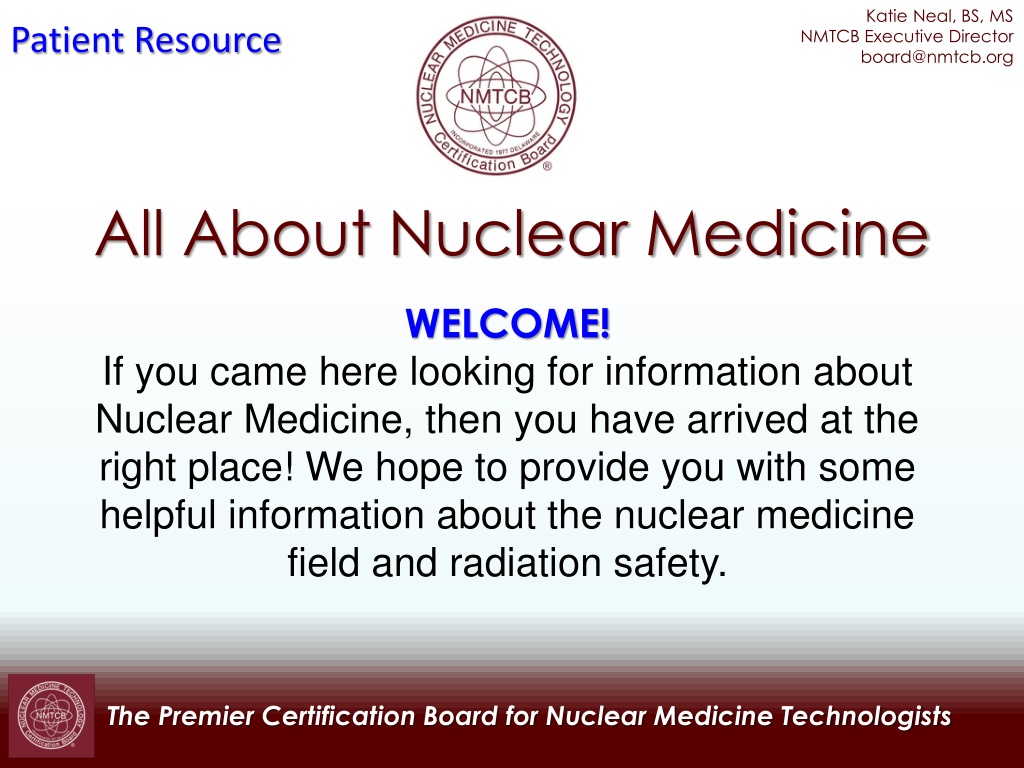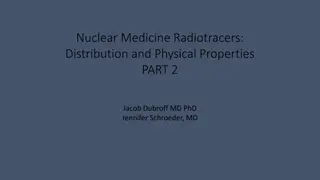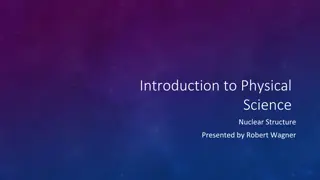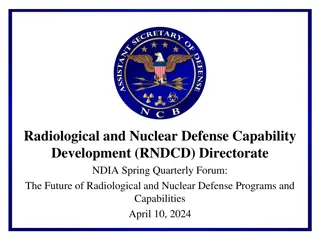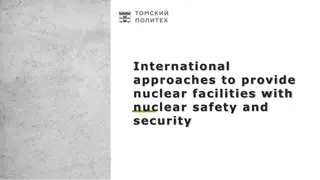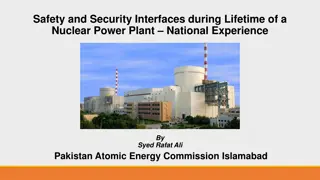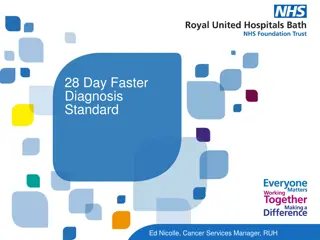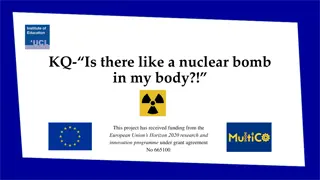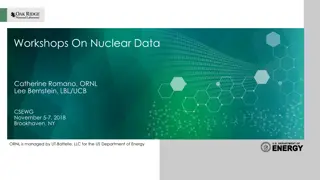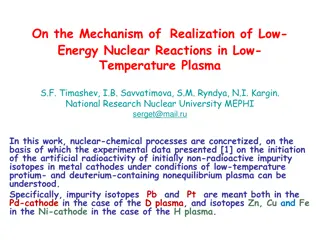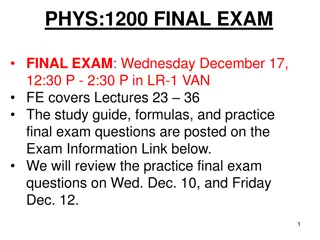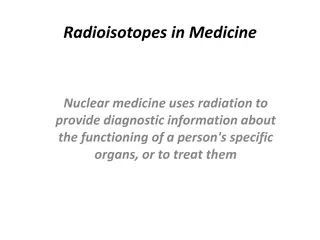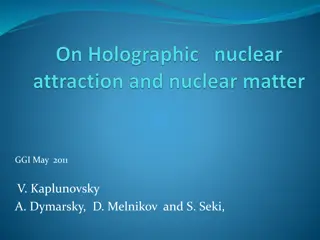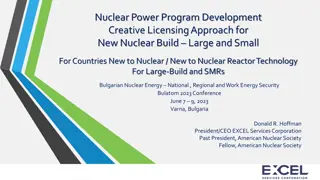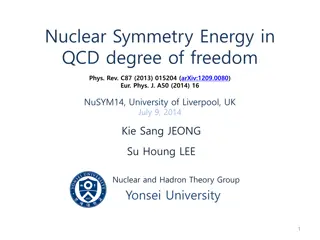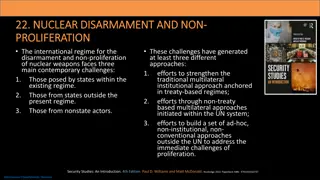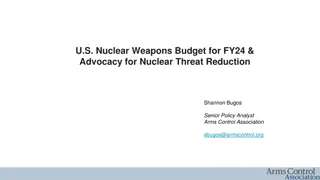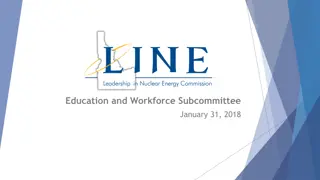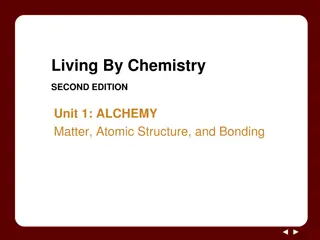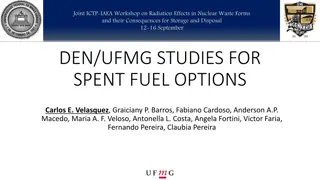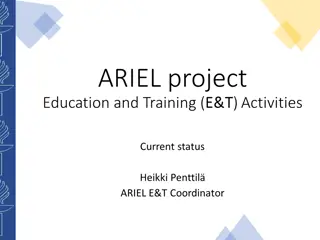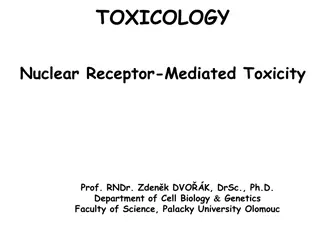Understanding Nuclear Medicine: A Guide to Diagnosis and Treatment
Nuclear medicine plays a crucial role in diagnosing and treating various conditions by imaging how the body functions. This guide provides insights into the use of radioactive pharmaceuticals, the importance of early detection, and the effectiveness of nuclear medicine in therapy. Learn how nuclear medicine procedures work and why they are essential in modern healthcare.
Download Presentation

Please find below an Image/Link to download the presentation.
The content on the website is provided AS IS for your information and personal use only. It may not be sold, licensed, or shared on other websites without obtaining consent from the author. Download presentation by click this link. If you encounter any issues during the download, it is possible that the publisher has removed the file from their server.
E N D
Presentation Transcript
Katie Neal, BS, MS NMTCB Executive Director board@nmtcb.org Patient Resource All About Nuclear Medicine WELCOME! If you came here looking for information about Nuclear Medicine, then you have arrived at the right place! We hope to provide you with some helpful information about the nuclear medicine field and radiation safety. The Premier Certification Board for Nuclear Medicine Technologists
What is Nuclear Medicine? Nuclear medicine is very unique, because it helps doctors view how your body is functioning. This type of imaging takes very small amounts of radioactive pharmaceuticals and follows their path and progress through your body. X-rays or CAT scans can show how something in your body looks, but Nuclear Medicine can show how your body actually works. The Premier Certification Board for Nuclear Medicine Technologists
What is Nuclear Medicine? (continued ) Nuclear medicine is a type of molecular imaging where radioactive pharmaceuticals (often called radiopharmaceuticals ) are used to evaluate the body s functions and processes This type of imaging can be used on all types of living things, but NMTCB is concerned with using this technology to help diagnose and treat human beings. The Premier Certification Board for Nuclear Medicine Technologists
What is Nuclear Medicine? (continued ) NUCLEAR MEDICINE IMAGING procedures look at the bodily functions to help make your diagnosis. NUCLEAR MEDICINE THERAPY can actually be used to treat the body. If you are undergoing a therapy process, then larger amounts of radiation will be used to treat cancer or thyroid disease. The Premier Certification Board for Nuclear Medicine Technologists
Why is Nuclear Medicine so important? Nuclear medicine imaging can help with early detection or discovery of changes in your body s functions. Physicians need an accurate diagnosis first, so they can formulate an ideal treatment plan specifically for your needs! This detection could help your care team avoid having to perform invasive procedures and possibly treat the problem without surgery. The Premier Certification Board for Nuclear Medicine Technologists
What will they do to me during a nuclear medicine procedure? 1. You will be given an imaging agent. This could be given to you in a variety of ways: possibly by swallowing a pill, through an injection, an inhaler, or even a special meal you will need to eat. 2. The imaging agent will travel to the specific organ or tissue that needs to be studied. 3. You will have pictures of your body taken with a specialized camera from inside a scanner. 4. Your medical team will receive the images of your body to review and evaluate. The Premier Certification Board for Nuclear Medicine Technologists
What about the radiation? Very small amounts of radiation are given during nuclear medicine imaging scans. Larger amounts are used for therapy in order to target very specific areas. The scanners (equipment) do not give off radiation. The Premier Certification Board for Nuclear Medicine Technologists
But I reallydont like the idea of radiation Radiation is actually in small doses all around us! On average, Americans receive a radiation dose of about 0.62 rem (620 millirem) each year. Half of this dose comes from natural background radiation. Most of this background exposure comes from radon in the air, with smaller amounts from cosmic rays and the Earth itself. Radon in homes, Air travel radiation Even bananas! (Bananas are radioactive enough to regularly cause false alarms on radiation sensors used to detect nuclear material at US ports!) The Premier Certification Board for Nuclear Medicine Technologists
Radiation is really everywhere? Yep, it sure is! We live in a radioactive world, and radiation has always been all around us as a part of our natural environment. The annual average dose per person from all sources is about 360 mrem, but it is not uncommon for any of us to receive more than that average does in a given year (largely as a result of medical procedures). The Premier Certification Board for Nuclear Medicine Technologists
Radiation Comparison The Premier Certification Board for Nuclear Medicine Technologists
Risk or Benefit? - Each exposure to radiation carries its own very small risk. So, the third or fourth scan you have carries the exact same risk as the very first. - The benefit of having a correct diagnosis and discovering what is going on in your body outweighs the risk of the exam itself. The Premier Certification Board for Nuclear Medicine Technologists
What does the NMTCB do? NMTCB offers nationally recognized board exams for technologists to attest to their knowledge and understanding of nuclear medicine The Nuclear Medicine Technologist (NMT) is a highly specialized healthcare professional who works closely with the nuclear medicine physician. The Premier Certification Board for Nuclear Medicine Technologists
NMTCB Certifications NMTCB currently offers five credentials: CNMT NMTCB(CT) NCT PET NMAA As a patient, you have the right to ask your technologist whether he or she is Board certified! The Premier Certification Board for Nuclear Medicine Technologists
Other Great Resources www.SNMMI.org/dose www.RadiologyInfo.org www.ImageGently.org (For Kids) www.ImageWisely.org (For Adults) www.DiscoverMI.org http://www.nrc.gov/about- nrc/radiation/around-us/doses-daily- lives.html#1 (Doses in Our Daily Lives) The Premier Certification Board for Nuclear Medicine Technologists
A Word of Advice Please remember, your health care team will be the most knowledgeable resource for your individualized care plan, so just ask your physician or technologist about your concerns. They should be able to explain the specific procedures and guide you through the process. As a patient, you have the right to ask questions and obtain details about the care you receive.
Nuclear Medicine Technology Certification Board 3558 Habersham @ Northlake, Bldg. I Tucker, GA 30084 p 404 315 1739 | f 404 315 6502 | www.NMTCB.org board@nmtcb.org The Premier Certification Board for Nuclear Medicine Technologists
